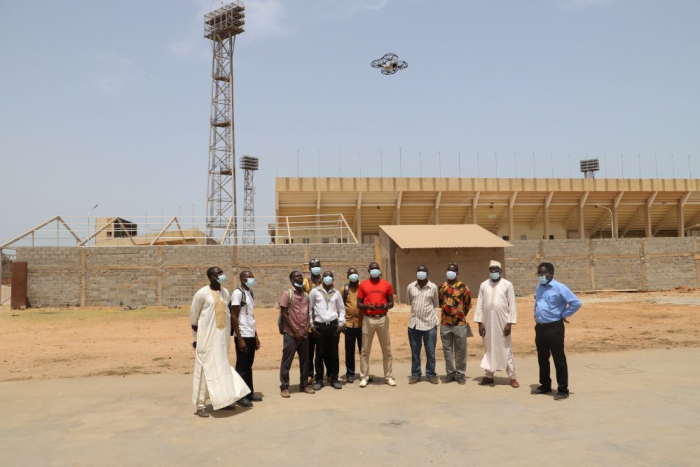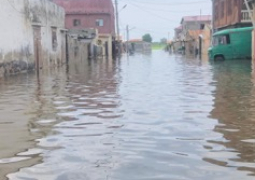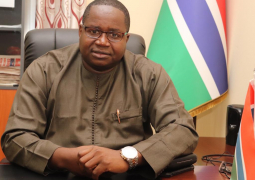
Advancement in mobile technology through the use of Unmanned Aerial Vehicle (UAV), also known as drones, in different aspects of agriculture has the potentials to help address these challenges.
Sensors mounted on drones help collect real-time information on vast agricultural areas within a short time. The data collected enables farmers, researchers and extension agents to quickly detect where crops require intervention even before signs of distress become visible to the naked eye. This information allows for appropriate and urgent actions to address issues related to nutrients, water, herbicides and pesticides, to optimise the overall input of resources (both material and humans).The use of drones in agriculture also facilitates the early detection of pests and diseases, thus reducing smallholder farmers' risk and vulnerability.
However, The Gambia lacks a comprehensive system to support, capture, analyse and report real-time Geographic Information System (GIS - a framework for gathering, managing and analysing data) field data from project intervention areas. The availability of such a system with highly trained and competent staff will assist in the tracking and reporting of climate change factors and foster coordination with other government programmes to plan and implement mitigating programmes.
In line with its 2018 – 2022 Country Programming Framework and National Development Plan 2018 – 2021, the Food and Agriculture Organization of the United Nations (FAO) is assisting the Gambian Government in harnessing the potentials of IT to address these national priorities in the Agriculture and Natural resources sector (ANRs). The intervention is also consistent with the AU Agenda 2063 and the 2030 global Sustainable Development Goals (SDGs).
Through support from the Global Environment Facility (GEF) funded project "Adapting Agriculture to Climate Change in the Gambia", FAO has recruited Odamme Simmons, an international consultant, to build local capacities. He is currently training 26 personnel of the Planning Service Unit (PSU) of the Ministry of Agriculture on collecting, managing, analysing and disseminating high-quality drone data for multiple uses. The intervention will strengthen the PSU's capacity to improve lives and livelihoods and contribute to socio-economic growth.
Simmons also supports the analysis of existing secondary information/ data and analyses data collection systems, database and GIS mapping, and monitoring systems for food security. He is also required to make recommendations on developing information for relevant data collection for a database system, analysis on vulnerability and risk assessment and agro-climatic monitoring for food security.
Simmons has extolled the cooperation and enthusiasm of participants. He commended FAO and GEF for their support to the Government to assess vulnerabilities and risks and timely disseminating climate risk information to users at all levels.
Perspectives of participants
According to Musa Jallow of the PSU, the training and the introduction of drones in the Gambia agriculture sector is a welcome gesture. He described the training as both timely and relevant, noting that it will equip the unit with the requisite knowledge and skills to gather data quickly and accurately. He commended FAO for the intervention. He, however, emphasised the need for more training and resources to boost capacities for effective service delivery.
Sheikh Joof of the National Agriculture Research Institute (NARI) also lauded the initiative noting that he has always wanted to learn and practice drone technology in his work. "We have now acquired the basics in becoming specialist in drone technology, and I am eager to use the knowledge gained to improve my work as an agriculture researcher", he said.
Ebou Jobe of the Department of Livestock Services (DLS) and Ousainou Njie of the Department of Agriculture (DOA) agreed that the training is very effective and relevant to their work needs in terms of improving food security in the country.



